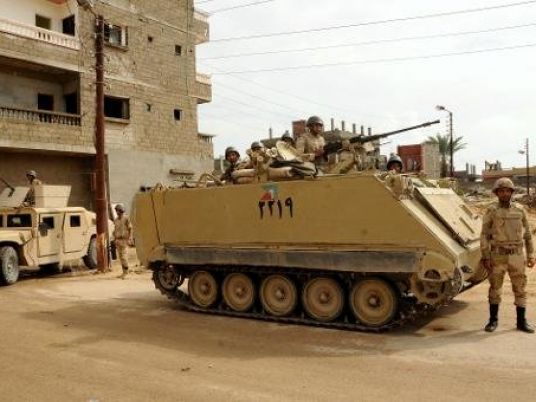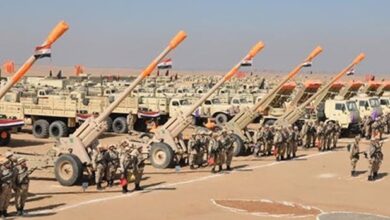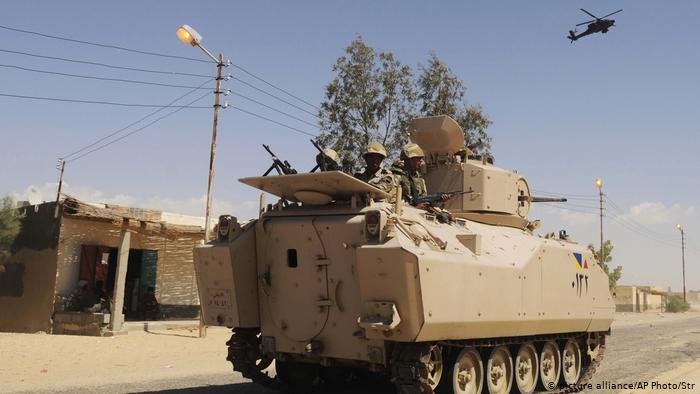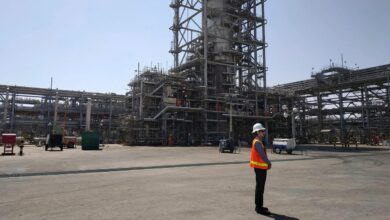
With soldiers firing warning shots to herald the nightly curfew and jihadist militants beheading informants, Sinai's residents find themselves caught in the middle of Egypt's "war on terror".
The Sinai Peninsula has become a hotbed of Islamist militancy after decades of neglect under former president Hosni Mubarak, and amid a security vacuum triggered by the army's ouster last year of his successor Mohamed Morsi.
Militant attacks remain commonplace almost two years since the military launched its "war on terrorism" in northern Sinai bordering Israel and the Palestinian Gaza Strip.
A brazen suicide bombing on October 24 killed 30 soldiers near the North Sinai capital El-Arish, sparking a state of emergency and a curfew being slapped on several areas of the province.
The attack was claimed by Egypt's deadliest jihadist organisation Ansar Beit al-Maqdis (Partisans of Jerusalem), which has since pledged allegiance to the Islamic State group that has captured swathes of territory in Syria and Iraq.
Extra security including an overnight curfew, increased police and army patrols and additional checkpoints have left El-Arish's nearly 170,000 residents angry and questioning Cairo's counter-terrorism strategy.
'Controlled' blast wounds 10
"Why did the security forces take all this time? Why did they did not defuse the bomb or move it away before detonating it?" asked Wael, inspecting a large crater caused by police detonating a car bomb in a busy district last week.
Residents told AFP security forces took four hours to respond after locals alerted them about a suspicious vehicle.
Police then set off a "controlled" blast of the booby-trapped car, wounding 10 people and damaging several houses.
"If they can't protect us, why did they come? They should leave and let the people deal with the terrorists themselves," Wael said.
Police stations and other security installations in El-Arish are heavily guarded, with barbed wire and sandbags blocking access roads, an AFP correspondent saw.
At one police station on the city's outskirts, a sign proclaims: "Do not approach or we will open fire."
A 5:00 pm to 7:00 am curfew has had a major impact on daily life.
As the clock approaches 5:00 pm, El-Arish residents rush to their homes as soldiers fire warning shots.
Mobile phone networks and Internet services are cut for most of the day, affecting business, and there is also an acute fuel shortage, with regular queues up to four kilometres (2.5 miles) long.
El-Arish residents are clearly unhappy.
'Why not surgical strikes?'
"I'm not sure how the army operates, but I doubt it has enough intelligence information," said one merchant who lived under the Israeli occupation of the city between 1967 and 1979.
"The Israelis used surgical strikes to eliminate their targets without touching those sitting next to them. Why does the Egyptian army not use similar tactics?" he asked, speaking on condition of anonymity.
Despite the heightened security presence, residents are clearly afraid to cooperate with the army after several men were killed for being informants, the businessman said, referring to gruesome video footage of beheadings released by Ansar Beit al-Maqdis.
The group has killed scores of security personnel since Morsi's July 2013 ouster in retaliation for a bloody government crackdown on his Islamist supporters which has killed at least 1,400 people.
But it is not only the residents of El-Arish who are living in fear.
The city's security chiefs have restricted their movements and "set up beds in their offices", indicated one local official, again speaking on condition of anonymity.
Near the main highway, the scene of several militant attacks, hundreds of hectares of olive groves have been razed.
"The army is convinced that jihadists hole up in these plantations," said a farmer who declined to give his name for fear of reprisal.
"My heart breaks when I see this, but when I see television pictures of people dying, I think anything's fine as long as my family and I are safe."




